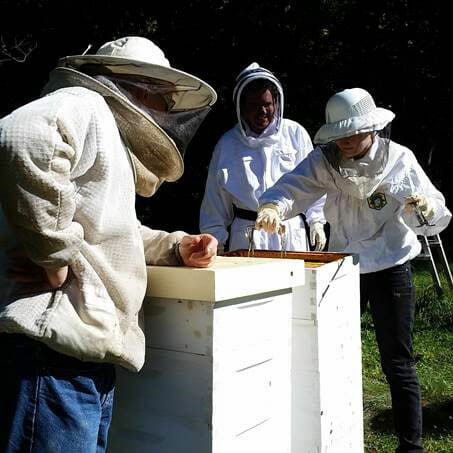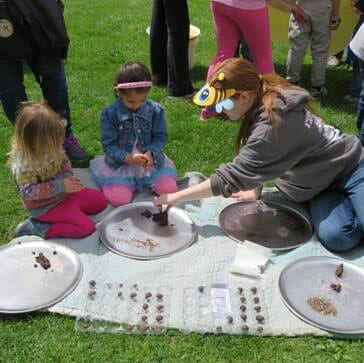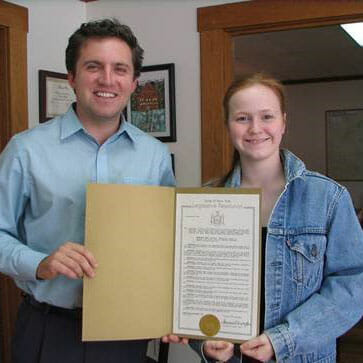College-Bound Girl Scout Starts Nonprofit to Save the Bees

Meet Daily Point of Light Award honoree Elizabeth Klosky. Read her story and nominate an outstanding volunteer, family or organization as a Point of Light.

Two years ago, Elizabeth Klosky was brainstorming ideas with her father on what to do for her Girl Scouts Gold Award project when she had the idea to do something to protect bees. She and her father had just begun to keep bees in the yard, but when she realized how important they were to the environment – and that certain bee populations around the world were struggling – she wanted to help.
Initially, her idea was to go to events focused on nature and environmental issues, reach out to people there and set up a few native bee houses.
“It ended up getting a lot bigger than that,” said Elizabeth.
She ended up presenting at a lot more events, setting up eight native bee houses and reaching more than 8,000 people who supported bee-friendly legislation in New York State through change.org.

Once the Gold Award project was complete, Elizabeth saw how big it had become. With the help of her parents and some “worker bees” (her volunteers), she set off on the path toward turning her project into a nonprofit – New York is a Great Place to Bee.
Through the organization, Elizabeth worked with New York Assemblyman James Skoufis in an attempt to secure a grant to help beekeepers start new hives in the city. Though that didn’t pass, it created room for future bee-friendly legislation that finally did go through.
Working with the mayors and supervisors of several towns in her community of Orange County, New York, Elizabeth helped establish a Proclamation of Pollinator Week, a week at the end of June that honors pollinators and celebrates all the work that they do, which was signed by Gov. Andrew Cuomo.
Her organization also promotes environmental education for children. Elizabeth, with the help of her worker bees, holds events with hands-on activities to help kids understand what bees do and how vital they are to the world. While the projects are mainly geared toward younger audiences, Elizabeth says that volunteers of all ages enjoy making wildflower seed bonbons, small candy-like balls that people can plant in their gardens to help regrow wildflowers that bees depend on for food.

In the fall, Elizabeth will attend Cornell University, where she plans to continue her studies at the Dyce Lab for Honey Bee Research. While she’s away, she has high hopes that the organization will thrive in her worker bees’ capable hands.
Whether it be for bees or another cause, Elizabeth has advice for anyone who is interested in volunteering.
“Do a lot of research and just find out as much as you can about whatever it is you’re interested in. Use that research to find a place to get involved, and then just go for it!”
To find volunteer opportunities in your area, search All for Good.
